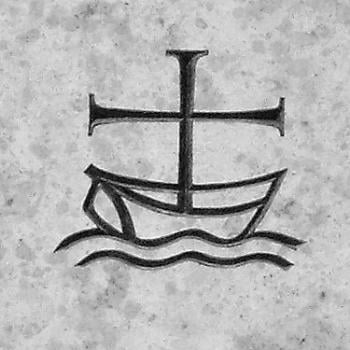 By Marvin Olasky
By Marvin Olasky
What did you do on your summer vacation? I saw America's Established Church.
The Established Church wasn't Anglican or Baptist or Presbyterian: It was Darwinian. On a trip across America I stopped to visit Independence Hall in Philadelphia and found next to it -- on land administered by the National Park Service and protected by government guards -- the American Philosophical Society Museum and the exhibition that has occupied its space since April 2009, "Dialogues with Darwin."
The name is a misnomer. The exhibition did not feature dialogue. One small section of it listed three 19th-century challengers to Darwin -- Edward Cope, August Weismann, and Hugo de Vries -- but the displays told us that his wisdom dispatched them all. "Dialogues with Darwin" was hagiography, a life of a saint, with sentences like "Despite the death of three of his children and a painful chronic illness, Darwin persevered in his work." (Actually, it seems that Darwin persisted because of the suffering: He could not reconcile it with the existence of a good Creator.)
The only "dialogue" came in the form of sticky notes that visitors were invited to post. Some were bluster: "Science is evolution!" Some were diplomatic: "American History is very interesting," one Japanese visitor wrote, "I had fun." But others were rebellious: "In the beginning God made Heaven and Earth and all that is in it." No one would know from this grand exhibition and thousands of lesser ones throughout the United States that, despite decades of indoctrination, most Americans do not bend the knee to Darwinism.
The results of Gallup polls over the past three decades are consistently extraordinary. Picture a Gallup pollster reading this statement: "God created human beings pretty much in their present form at one time within the last 10,000 years or so." Would you think that year after year since 1982 some 44-47 percent of Americans have agreed? If you remove the number of years, which some "old earth" Christians do, the number of anti-evolutionists jumps to 53 percent.
And that's not all. Another 35-38 percent of Americans say that "human beings have developed over millions of years from less advanced forms of life, but God guided the process." Only 9-14 percent support Darwinist materialism: "Human beings have developed over millions of years from less advanced forms of life, but God had no part in the process." All the atheist best sellers of recent years -- Sam Harris's The End of Faith and Letter to a Christian Nation, Richard Dawkins's The God Delusion, Daniel Dennett's Breaking the Spell, and Christopher Hitchens's God Is Not Great -- have not greatly enlarged the beachhead.
It's ironic that soon after Alister McGrath wrote a fine history, The Twilight of Atheism, the "new atheists" came out in force. But don't be fooled. They bring not a new dawn but a night of the living dead. Their honest advocates are biologists like Bruce Alberts, former president of the National Academy of Sciences, who announced, "We have come to realize humans are more like worms than we ever imagined." If that's an insufficiently winning statement for you, hear Charles Zuker, biology professor at the University of California at San Diego: "In essence, we are nothing but a big fly."
With advocates like that, is it surprising that Darwinist materialism hasn't gained more of a following? A small problem, in addition, is that the science doesn't support it. Darwinists like to claim scientific unanimity on their behalf, but scientists are under enormous pressure to assent to evolution. Anyone who believes in Creation might as well wear a scarlet C. "Peer reviews" block their papers. Mainstream journals reject their articles. Government groups or foundations deny them funding. Even so, over 1,000 scientists have signed the Discovery Institute's "scientific dissent" from Darwinism that states, "We are skeptical of claims for the ability of random mutation and natural selection to account for the complexity of life."
Why else hasn't the Established Church won hearts and minds? Well, despite the many problems of churches, many Americans still attend them, and polls from 2001 to 2005 found that among those who attend church weekly or almost weekly, 65 percent say God created human beings in their present form. (Among 18- to 29-year-olds, the figure is even higher -- 66 percent.) If we really want to build the Church of Darwin, we need to close down the opposition -- although Communists in the Soviet Union, China, Poland, Cuba, and other countries found that even this doesn't work.




